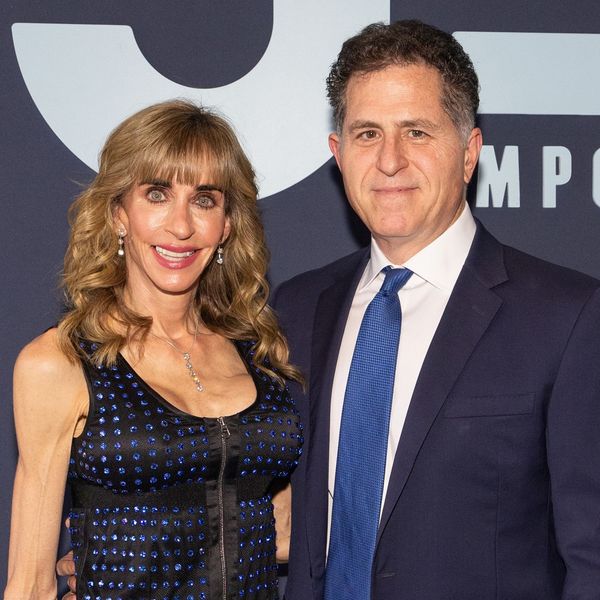When are we going to stop lying to ourselves about public education? When are we going to stop pretending we can get world-class results on second- world spending? When are we going to stop fooling ourselves that our neglect will never come home to roost?
I spent 20 years in the computer industry before becoming a public-school teacher five years ago. I had risen to become vice president at one of the world's largest software companies. I know business. And I know something about education as well. Education is harder.
Education is harder because cultivating human intelligence is one of the most difficult things in the world. It is far more complex and takes far longer than producing cheaper widgets or staging new ad campaigns. It takes millions of nuanced, exquisitely tailored stimuli, all reinforced at the right time, in the right context, and all delivered in a supportive emotional environment. Even then, it's not always predictable. But it is a certainty to fail without commitment.
And imbuing a child with what we call character is equally daunting. Perseverance, honesty, humility, courage, responsibility, compassion -- these are just as important as the intellectual gifts we treasure, but they don't come from assembly lines either. Like intelligence, they take years of deeply personal, meticulous cultivation. If they were so easy to manufacture, they would not be so highly prized.
These are the things we rightly want and need from our educational system. But the lie we tell ourselves is that we can get them on the cheap. California ranks 47th in the nation in per-pupil spending, 49th in class size. How many believe the company you work for can be the best in its industry if it only pays for the cheapest workers, if it only uses the cheapest materials in its products? None of us are so stupid as to believe this, yet we pretend we can get away with it in education.
The truth is that we've been living off of our capital, eating our seed corn for at least a generation. It was Gov. Pat Brown in the 1960s who built one of the greatest educational systems in the world. But since at least the late 1970s and Proposition 13, we've been disinvesting, drawing on the pool of older workers, importing talent from out of state and from abroad. How long do we think we can play this game and still keep a world-class economy?
Another lie we tell ourselves is that there will be no consequences for our miserly spending -- a seductive lie, because while the costs of education must be borne today, the payoffs don't come for years, perhaps decades. This is what the biblical story about building a house on sand is all about. Our "no-payments-until-March" mentality has lulled us into believing that we can scrimp today but still harvest tomorrow.
Remember Aesop's fable about the ant and the grasshopper? The grasshopper played all summer, laughing at the toiling ant. But come winter, it was he who shivered. It was the grasshopper who had to go begging to the ant for food. Do we imagine there's going to be a charitable ant to bail out our state's imprudent grasshopper? There won't be. By the time we realize the damage we've wrought, it will be too late.
Finally, we lie to ourselves that "privatization" will offer some kind of quick fix that will solve all of our problems. Privatization means corporate control of our schools. Corporations are wonderful things, but they only work for a profit. To make a profit from education you need to do two things: increase efficiency and reduce costs.
Increasing efficiency means removing variability while boosting output. This is a great formula for mass-producing hamburgers or semiconductors. It is a disaster for producing intelligence and character in children. Remember, intelligence and character come from carefully managed complexity, ambiguity and uncertainty, all delivered in a safe, patient, nurturing environment. This is the opposite of efficiency.
Then, decreasing costs means cutting the salaries of already underpaid teachers, for they represent the vast bulk of the costs in education. But good teachers are expensive, as well they should be. They possess a magical combination of empathy, intelligence, ingenuity, patience and persistence -- the very traits we're trying to develop in our children. And the best teachers have the best options for work in other fields. They will be the first to go when told to become robotic readers of regimented curriculum.
How many parents are willing to turn their children over to companies whose principal goal is to make a profit off them? How many want them taught by the cheapest teachers, crammed into the largest classrooms, reciting only the most rote repetition? Yet, if it is to make a profit, that is the only plausible vision that mass privatized education has to offer us: McStudents.
The supreme irony is that the truths we should be confronting here are the very ones we so gravely lecture our children about: You can't get "something for nothing"; actions have consequences; there's no easy fix to hard problems.
We need to stop lying to ourselves that we're doing what is needed to produce high-quality education. We can continue to mass produce cookie-cutter students on the cheap and we will reap a generational whirlwind of well- regimented, intellectually impotent dullards. Or, we can tell the truth. We can pay the honest freight to cultivate true intelligence and character in our children. To be sure, it is much harder and somewhat more expensive, at least in the short run. But it is the only way to sustain the blessings of prosperity that have graced our state.


